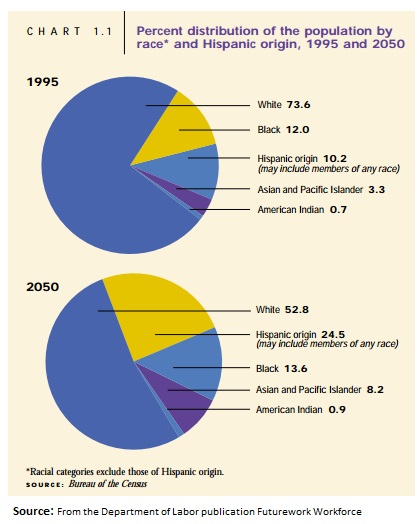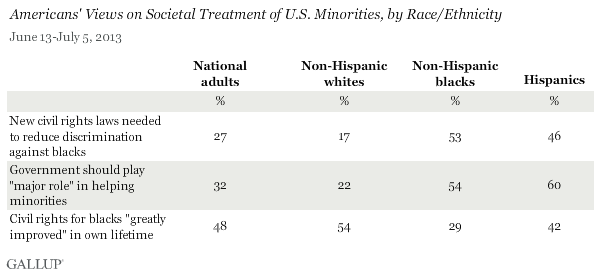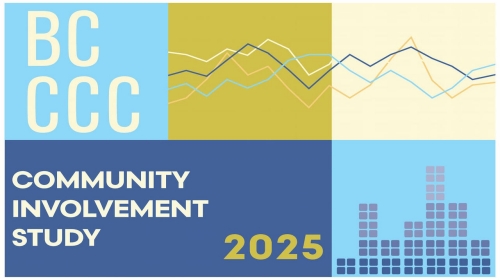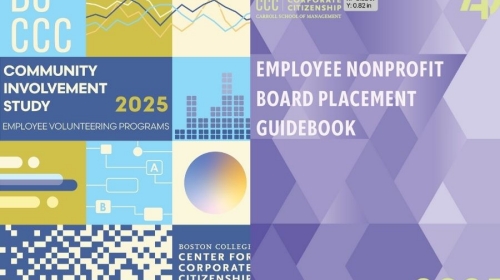WEBINAR: This webinar explores how to measure and communicate your organization's social impact with proven frameworks and strategies that matter to stakeholders.
Crisis on Top of Crisis: Can Business Leaders Create a Positive Tipping Point?

The recent riots and protests triggered by George Floyd’s unnecessary death have swept the United States. Over centuries chronic frustration about unequal application of the law and access to opportunity has led us to this point. This most recent inflection point seems to have started in Ferguson, Missouri in 2014 with the emergence of the Black Lives Matter protests resulting from Michael Brown’s death. Since then, we have had continuous and ample indications that equal protection of human rights and access to opportunity have been out of reach for too many, and for too long.
In the intervening six years we have seen outrage about racial inequality boil up and simmer down periodically. Centuries of discrimination and the resulting chronic frustration is borne not out of just the newsworthy instances of brutality at the hands of bad actors, but of larger divides. A recent Gallup Poll found that only 18% of black respondents are satisfied with the way they are treated in this country today, compared with 51% of white respondents who indicated they are satisfied with the way black people are treated. Well over half of black people believe that blacks are treated less favorably than whites in dealing with the police, in stores and malls, and on the job. About half of blacks say blacks are treated less favorably in neighborhood shops, in restaurants and in getting healthcare.[1]
Five and a half years ago, when I first wrote about the role that business and corporate citizenship leaders could play in bringing more equality to our society, we were not facing a global pandemic and unemployment was about 25% of what it is today—both of these current conditions are now affecting people of color disproportionately. We must approach the future with the view that all Americans can move forward together rather than allowing our current crises to deepen and widen our existing opportunity gap.
Now, as in 2014, corporate citizenship leaders have a role to play. What can we be doing differently? Large things and small. Many BCCCC member companies are stepping forward to provide support to the communities most challenged by the current opportunity gap. Many more have expressed support for the sentiment that drives the current protests. We can also look inward and examine every aspect of our programs—from compensation practices, to how we develop staff, to how we prioritize social issues, to how we structure our team activities—and ask ourselves whether we are doing everything we can to make every person feel included and valued.
I include my article from 2014 as a pragmatic reflection about what has not changed and why it is in all of our best interests to see equality achieved. Each of us should be thinking about what we can do to facilitate reconciliation and equality—from wherever we sit. We will come to solutions from many directions. Business leaders have been an important voice on several other important social issues including climate change and LGBTQ rights. They can be and, as you can see in our catalog of their recent efforts, they may be again.
[1] https://news.gallup.com/opinion/polling-matters/247178/reparations-black-americans-attitudes-race.aspx
WHAT CAN BUSINESS LEARN FROM FERGUSON?
December 3, 2014
Recent events in Ferguson, Missouri have drawn in stark contrast the differences of opinion, perception, and experience regarding race relations in the United States. Employers have a role to play in helping to create an environment of constructive dialog and mutual understanding and many are working hard to do so.
The conflicting versions of the Michael Brown / Darren Wilson story are well-documented and dissected in the popular media. The bigger story—and implication— for those of us who are not involved directly is in the community response both in and beyond Ferguson. While many civil rights advances have been made in this country, the outcry from those who feel that the consequences for this tragedy are unjust demands to be heard. We need to listen.
Business has a role to play in helping to continue our advances in overcoming bias and exclusion. Many companies now include diversity and inclusion goals in their CSR and corporate citizenship programs and research shows that companies that invest in diversity and inclusion programs can benefit not only from improved teamwork, innovation, and productivity; they can help lead a much needed national dialogue about what it means to commit to a truly inclusive environment.[1],[2],[3] This is not easy work, but it is imperative to our social and economic future. Though our diversity can be nurtured as an asset, the wage and wealth gaps that exist along racial, ethnic, and gender lines do not make us stronger as a society.
New Yorker contributor Jelani Cobb wrote about the fallout from the Ferguson case most eloquently when he wrote about the feelings of helplessness and rage that spurred the violence in Ferguson. “The anger that spilled into the streets reflected not only the devaluing of black life but the grim recognition that African-Americans find themselves hemmed between the dangers of crime and the perils of those whom other communities can trust to protect them from it.”
As a white woman, this is not my experience, but the fact that I don’t share that experience doesn’t mean that it is not true for others. The differences in how we are able to move through the world inform the differences in how we approach each other. These differences can be acknowledged and addressed or they can continue to create mistrust and misunderstandings that impede our ability to work together for the common good. This has played out in dramatic ways in recent days, but these kinds of differences play out in myriad subtle ways through everyday life.
A commitment to diversity and “capital I” inclusion in companies means that we will be challenged to think differently about how we recruit, compensate, and develop workers who have different cultural experiences and references than we do. Bias can be expressed in direct and indirect ways—from the questions on a job application to the activities that are intended to engage employees. Ask yourself if the Friday golf outing is the best way to make employees—even those who either must play from a different tee or who come from backgrounds that did not include country club memberships—feel included. Does the team-building experience that you offer tell all of your employees that they belong? Or does it tell them that despite their ability and talent they are somehow lacking a requisite element that they cannot acquire in order to advance?

The United States is projected to experience a demographic shift that will change our nation and our workforce. Our overall projected population growth of 50 percent by 2050 is expected to be driven both by U.S.-born citizens and immigration. The proportion of the population predicted to classify themselves as white-only is to drop from its current levels of almost 74 percent to approximately 47 percent of total population. With labor participation expected to hold constant, the majority of workers will no longer be white.
For those of us in the current majority who don’t feel compelled to address issues of race and inequality from the perspective of social justice, perhaps enlightened self-interest will provide motivation.
As individual citizens, we are going into this period of transition with very different perspectives along racial and ethnic lines about civil rights and equality in our society. Recent Gallup polls on race suggest that whites, in marked contrast to other groups polled, generally believe that the aspirations of the civil rights movement have been met. I wonder if that feeling will hold when we are no longer the majority.
[1] Perry-Smith, J. (2006). Social Yet Creative: The Role of Social Relationships in Facilitating Individual Creativity. Academy of Management Journal, 49(1), 85-101.
[2] Miller, T., & Triana, M.C. (2009). Demographic diversity in the boardroom: mediators of the board diversity-firm performance relationship, Journal of Management Studies, 46(5), 755-786.
[3] McKay, P.F., Avery, D.R., Liao, H., & Morris, M.A. (2011).Does diversity climate lead to customer satisfaction? It depends on the service climate and business unit demography. Organization Science 22(3), 788-803.
Related Content
RESEARCH BRIEF - Researchers investigated how ESG activities help or hurt financial performance, using nine years of data from over 1,200 global companies.
RESEARCH BRIEF - Researchers analyzed 4 US energy exchange-traded funds (ETFs) over 15 years, including 2 dirty energy funds tracking fossil fuel companies and 2 clean energy funds tracking renewable energy companies.
RESEARCH BRIEF - Researchers conducted a survey, which measured perceptions of CSR and ethical leadership within the manufacturing and service industries.
WEBINAR: This webinar explores how corporate giving will be reshaped by the One Big Beautiful Bill. Hear directly from corporate citizenship leaders as they share innovative, real-world strategies that deliver impact for communities and results for business.
This study explores shifting trends in employee volunteering, corporate giving, and other means of corporate community involvement.
This guidebook offers insights on placing employees in nonprofit board service roles.
This study explores shifting trends in employee volunteering, corporate giving, and other means of corporate community involvement.








